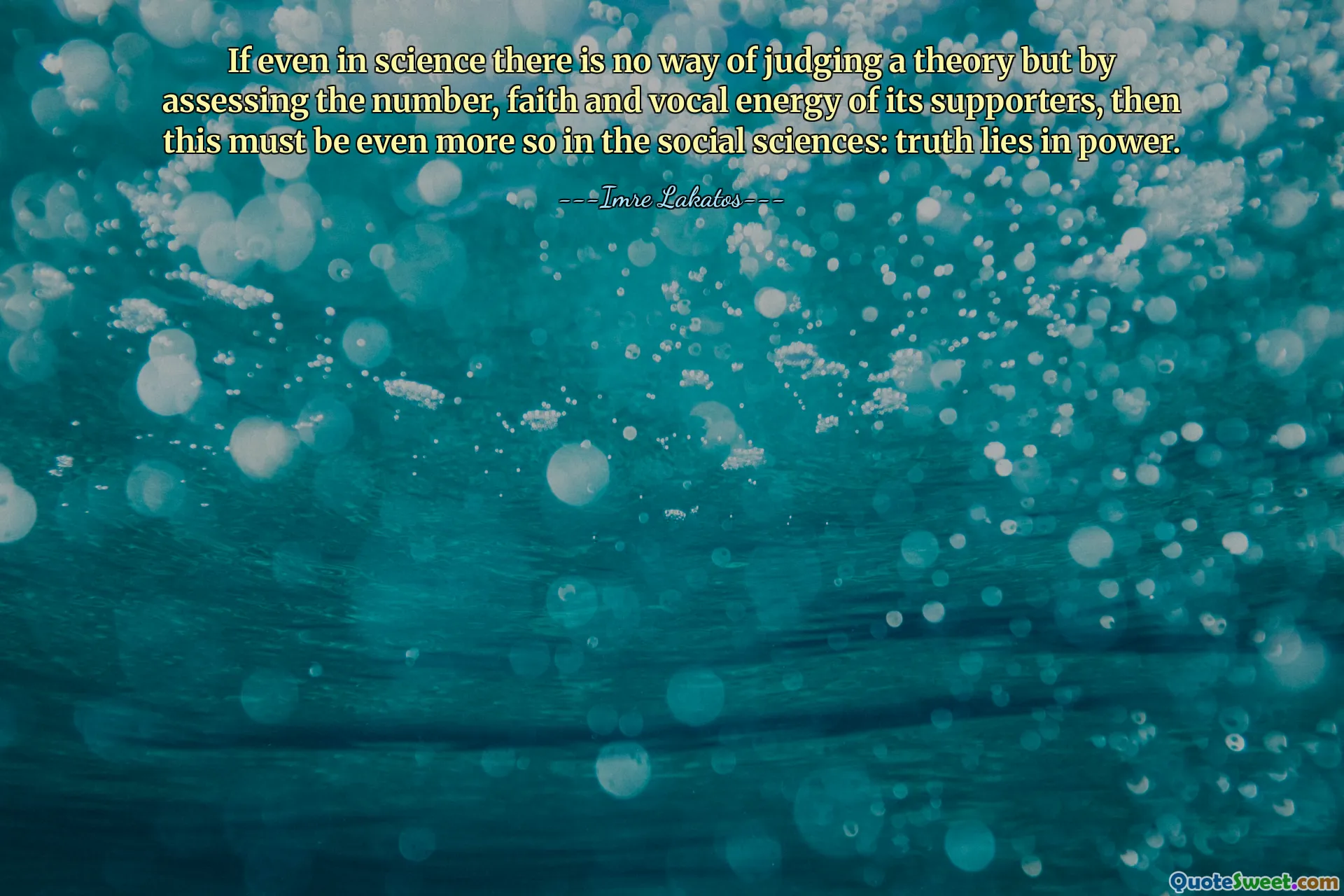
If even in science there is no way of judging a theory but by assessing the number, faith and vocal energy of its supporters, then this must be even more so in the social sciences: truth lies in power.
This quote from Imre Lakatos highlights a profound skepticism about the objectivity of knowledge, both in the natural sciences and especially in the social sciences. It suggests that the acceptance of a theory is not solely a function of its empirical or logical validity but is strongly influenced by social factors—namely, how many people support it, how fervently they believe in it, and how vociferously they defend it. This observation lays bare the human element behind scientific consensus. In science, ideally, theories should be judged on their explanatory power and empirical adequacy. However, Lakatos points out that even here, consensus can be shaped by social dynamics, politics, or subjective commitment rather than pure rational evaluation.
Extending this logic to the social sciences, which study human societies and behaviors, the quote claims that truth becomes even more entangled with power. In fields where human perspectives, ideologies, and interests are deeply embedded, the dominant narrative frequently reflects existing power structures rather than objective truths. Thus, 'truth lies in power' encapsulates a critical view of knowledge as inseparable from societal influence and domination.
This reflection asks us to approach scientific knowledge with humility and critical awareness. It encourages a recognition of how social, political, and historical contexts shape what is accepted as 'truth.' By acknowledging the role of power and belief in the endorsement of theories, both scientists and society are reminded that knowledge is rarely neutral or fixed—it is dynamic and often contested. Such an insight fosters ongoing critical inquiry and vigilance against complacency in accepting dominant paradigms without question.











